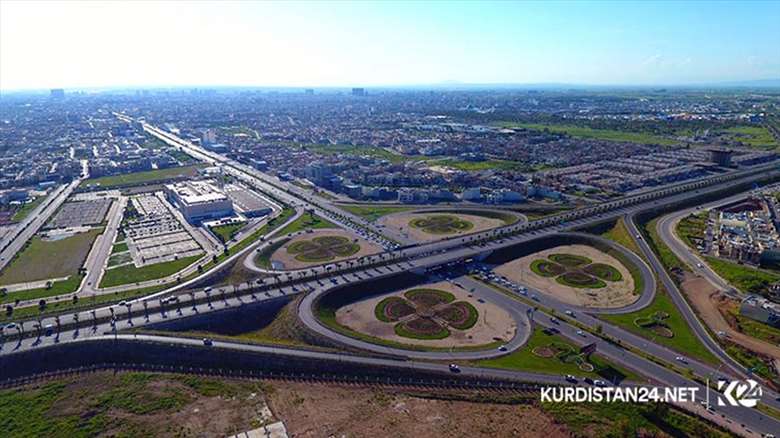Kurdistan Region seeks to create 200,000 new job opportunities over the next two years

ERBIL (Kurdistan 24) – The chair of the Kurdistan Regional Government's (KRG) Board of Investment said on Thursday that investment projects have achieved great benefits for the market in the autonomous region of Iraq is poised to continue to increase its activity.
In a statement to reporters on the sidelines of the Rwanga Forum, Chairman Mohammed Shukri said that such efforts have provided more than 11,000 new job opportunities since in the current administration of Prime Minister Masrour Barzani, noting that 139 work licenses were granted for investment projects during this period.
"I imagine that we can provide thousands of job opportunities by opening new projects," he added, noting that work is underway to establish industrial cities and hubs in the Kurdistan Regino.
"We hope that, by completing them, that we will provide 200,000 job opportunities over the next two years."
Shukri also indicated that the Board has stipulated that 75 percent of new jobs for investment projects must be hired from the domestic workforce.
Since its formation, the Kurdistan Regional Government’s ninth cabinet has allocated more than 15 billion IQD ($10.3 million) to implement strategic and sustainable projects in the region’s four provinces.
Read More: Kurdistan investment board approves dozens of "sectors for the future" projects
According to the KRG's Board of Investment, the government agency "is responsible for promoting and supporting investment opportunities in the Kurdistan Region, assisting investors, and authorizing licenses across all sectors."
The Kurdistan Region is still facing a severe financial crisis due to Baghdad's chronic delays in disbursing funds allotted to it, compounded further by the coronavirus outbreak and the global collapse of oil prices.
Like the federal government in Baghdad, the KRG depends on oil to cover the majority of its expenses and to fund projects but it is working to diversify its income sources to transform the region from a consumer region to a producer.